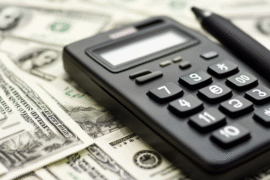This article may contain references to products or services from one or more of our advertisers or partners. We may receive compensation when you click on links to those products or services. Nonetheless, our opinions are our own.

Updated by Albert Fang
If you’re applying for car finance and have a low credit score, you may be wondering what credit score you need to be able to get car finance. When it comes to getting a car on finance, it can depend on the lenders criteria and how they assess your credit score. There are 3 main credit referencing agencies in the UK who each have their own individual credit scoring. Your credit score could be seen as ‘bad’ to one agency and ‘good’ to another. This means it can be confusing to pinpoint a specific number you need for car finance. However, with this in mind, the article below looks to explore how good your score needs to be and how to improve it.
Why does credit score matter for car finance?
When you apply for car finance, lenders will usually require you to pass a credit check before you are approved for finance. Being declined car finance can be disheartening but there can be an easy reason why you could not get approved. From a lenders point of view, it’s all about risk. A lower credit score usually reflects a history of financial mismanagement. Factors such as missed or late payments, no credit history and high levels of debt can all negatively impact your credit score. If you’ve had trouble in the past with credit, you are seen as a higher risk. Lenders use a credit check to calculate the risk involved and also set car finance rates.
What does your credit score need to be for car finance?
As quickly mentioned above, there’s no one size fits all credit score when it comes to getting a car on finance. You can have good credit and still be refused if you do not meet the lenders criteria. Credit referencing agencies rate credit scores and put them in categories, ranging from ‘very poor’ to ‘excellent’. Where you fall on these credit scales can be a good indicator of how you manage credit but it’s not the end of the road if you have a low credit score. Other factors such as affordability, employment status, and age can all affected the likelihood of you being approved for finance.
Can you get a car on finance with bad credit?
You’ll be pleased to know there is hope when it comes to getting car finance with bad credit. There are many bad credit car finance specialist lenders who can help people get approved. Instead of focusing on your credit history, they instead look at your affordability and as long as you can prove you can pay back your loan, you could be in with a chance of an approval. However, where possible, you should always try to increase your credit score to put yourself in a better financial position. Not only does bad credit affect car finance approval rates but it also can affect the rate you are offered. Higher interest rates mean you pay more overall and can make finance more expensive than it needs to be.
How to improve your credit score
There are so many benefits to having a better credit score. From easier acceptances to higher credit limits to lower interest rates. If you find yourself with a low credit score, there are a number of ways in which you can start to rebuild your score.
Check for mistakes on your credit file.
The first place you should start is with your credit file. When you check your credit report, you should make sure all your information is accurate and up to date. Having misinformation on your credit file can be negatively impacting your credit score. You should also check that all your applications for credit look right, if not, you may have been the victim of a fraudulent application in your name. If there is anything you need to change, you can contact the credit referencing agency who provided your credit report.
Make payments on time
One way to help improve your credit score is to pay all your current payments on time and in full. Showing evidence that you can be trusted to make payments and stick to the rule of your credit agreements can indicate that you are a responsible borrower and help increase your score.
Build a credit history
Many people assume that not taking out credit is a good thing. However, some people find themselves with a low credit score when they’ve had no borrowing experience. This is because lenders can’t predict what type of borrower you will. If you want to increase your credit score with no credit history, you should always start small. You could consider getting a credit building credit card and making small purchases each month and then paying them back on time. Or you could get a mobile phone contract in your name and set up a direct debit to pay it off each month.
Avoid new credit
If you’re waiting to improve your credit score before you get a car on finance, its best to not take on any new credit in this time. Lenders will look at how recent your last credit account was opened and opening multiple accounts in a short space of time can negatively impact your score as it can indicate to lenders that you are desperate for credit.
Keep your credit usage low
Your credit utilisation ratio shows how much available credit you have and how much of it you are currently using. Being close to your credit limit can negatively impact your credit score and may put lenders off. Where possible, you should try to keep your credit utilisation low. Best practice indicates that you should only use around 30% of your credit limit or try keep under 50%. For example, if your credit limit is £1000, you should only try to spend around £500 or less than £300 if you really want to boost your finances.

Reviewed and edited by Albert Fang.
See a typo or want to suggest an edit/revision to the content? Use the contact us form to provide feedback.
At FangWallet, we value editorial integrity and open collaboration in curating quality content for readers to enjoy. Much appreciated for the assist.
Did you like our article and find it insightful? We encourage sharing the article link with family and friends to benefit as well - better yet, sharing on social media. Thank you for the support! 🍉
Article Title: What Credit Score Is Needed for Car Finance?
https://fangwallet.com/2022/08/30/what-credit-score-is-needed-for-car-finance/The FangWallet Promise
FangWallet is an editorially independent resource - founded on breaking down challenging financial concepts for anyone to understand since 2014. While we adhere to editorial integrity, note that this post may contain references to products from our partners.
The FangWallet promise is always to have your best interest in mind and be transparent and honest about the financial picture.
Become an Insider

Subscribe to get a free daily budget planner printable to help get your money on track!
Make passive money the right way. No spam.
Editorial Disclaimer: The editorial content on this page is not provided by any of the companies mentioned. The opinions expressed here are the author's alone.
The content of this website is for informational purposes only and does not represent investment advice, or an offer or solicitation to buy or sell any security, investment, or product. Investors are encouraged to do their own due diligence, and, if necessary, consult professional advising before making any investment decisions. Investing involves a high degree of risk, and financial losses may occur including the potential loss of principal.
Source Citation References:
+ Inspo












































